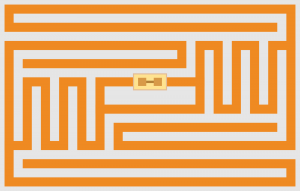RFID stands for radio-frequency identification. Information is stored in tags and the tags are attached to objects. A tag is not a barcode; the tag does not have to be visible to whatever device is reading it.
RFID tags have some genuinely valuable uses. They allow the contents of a warehouse or store room to be accurately counted in minutes instead of (as with barcodes) several hours. Products with a complicated manufacturing cycle (like cars) can be tracked through  every stage of the procedure, making possible faster repairs and a shorter time to manufacture with consequent cost reductions. There is increasing concern to track a pharmaceutical company’s product every step of the way from research laboratory bench to delivery of finished product to the pharmacy and RFID tags are one way to make that possible. For all of those reasons, the world should be pleased that RFID exists.
every stage of the procedure, making possible faster repairs and a shorter time to manufacture with consequent cost reductions. There is increasing concern to track a pharmaceutical company’s product every step of the way from research laboratory bench to delivery of finished product to the pharmacy and RFID tags are one way to make that possible. For all of those reasons, the world should be pleased that RFID exists.
But it is not enough to offset the use of RFID for what amounts to spying.
Authority does not like that word. Those who govern would like the governed to know (or, at any rate, they would like them to believe) that the measures they would like to put in place are solely for people’s security and benefit. Unfortunately, no government anywhere in the world can resist the temptation to gather more information about people once the opportunity exists. They don’t call it spying. But that’s what it is.
Other pages on this website will give examples of abuse of RFID tags. There will be those who say that anyone who has done nothing wrong will have nothing to worry about. That ignores the question of privacy. People have a right not to be monitored and spied on more than the absolute minimum necessary for a safe society.